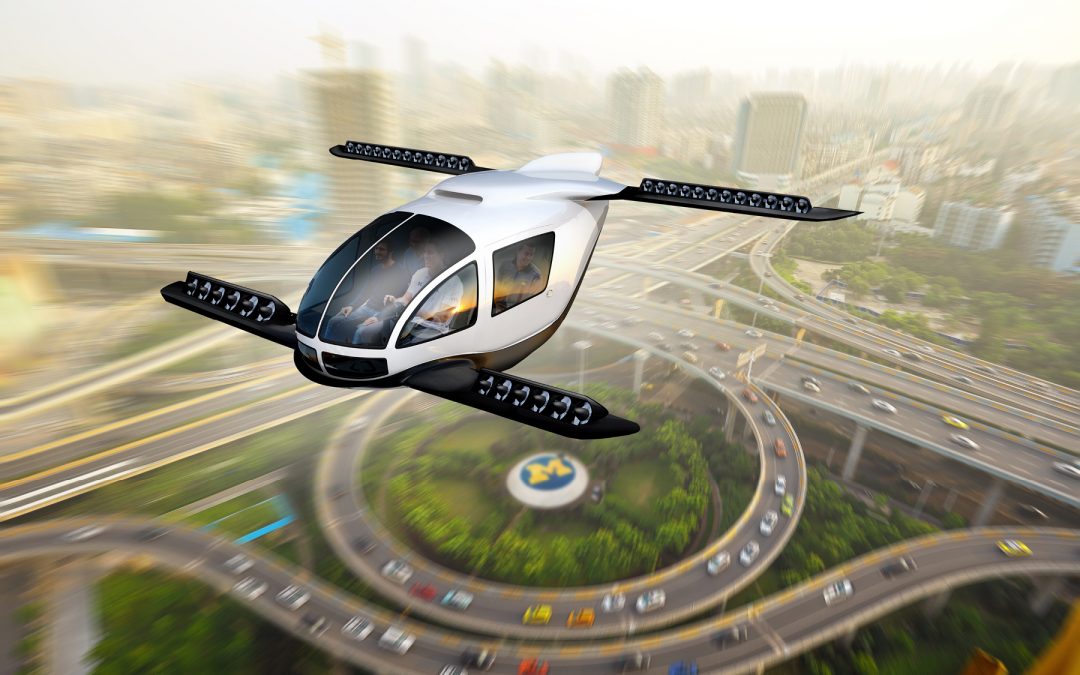A new study of the environmental sustainability impacts of flying cars, formally known as electric vertical takeoff and landing aircraft, or VTOLs, finds that they wouldn’t be suitable for a Jetsons-style short commute. However, VTOLs—which combine the convenience of vertical takeoff and landing like a helicopter with the efficient aerodynamic flight of an airplane—could play a niche role in sustainable mobility for longer trips, according to the study, which published April 9 in Nature Communications.
Akshat Kasliwal, first author of the study and a graduate student at the U-M School for Environment and Sustainability, said the findings can help guide the sustainable deployment of an emerging mobility system prior to its commercialization.
“With these VTOLs, there is an opportunity to mutually align the sustainability and business cases,” Kasliwal says. “Not only is high passenger occupancy better for emissions, it also favors the economics of flying cars. Further, consumers could be incentivized to share trips, given the significant time savings from flying versus driving.”
Noah Furbush is a co-author of the study and a master’s student at the U-M College of Engineering. “Electrification of aircraft, in general, is expected to fundamentally change the aerospace industry in the near future,” Furbush says.

